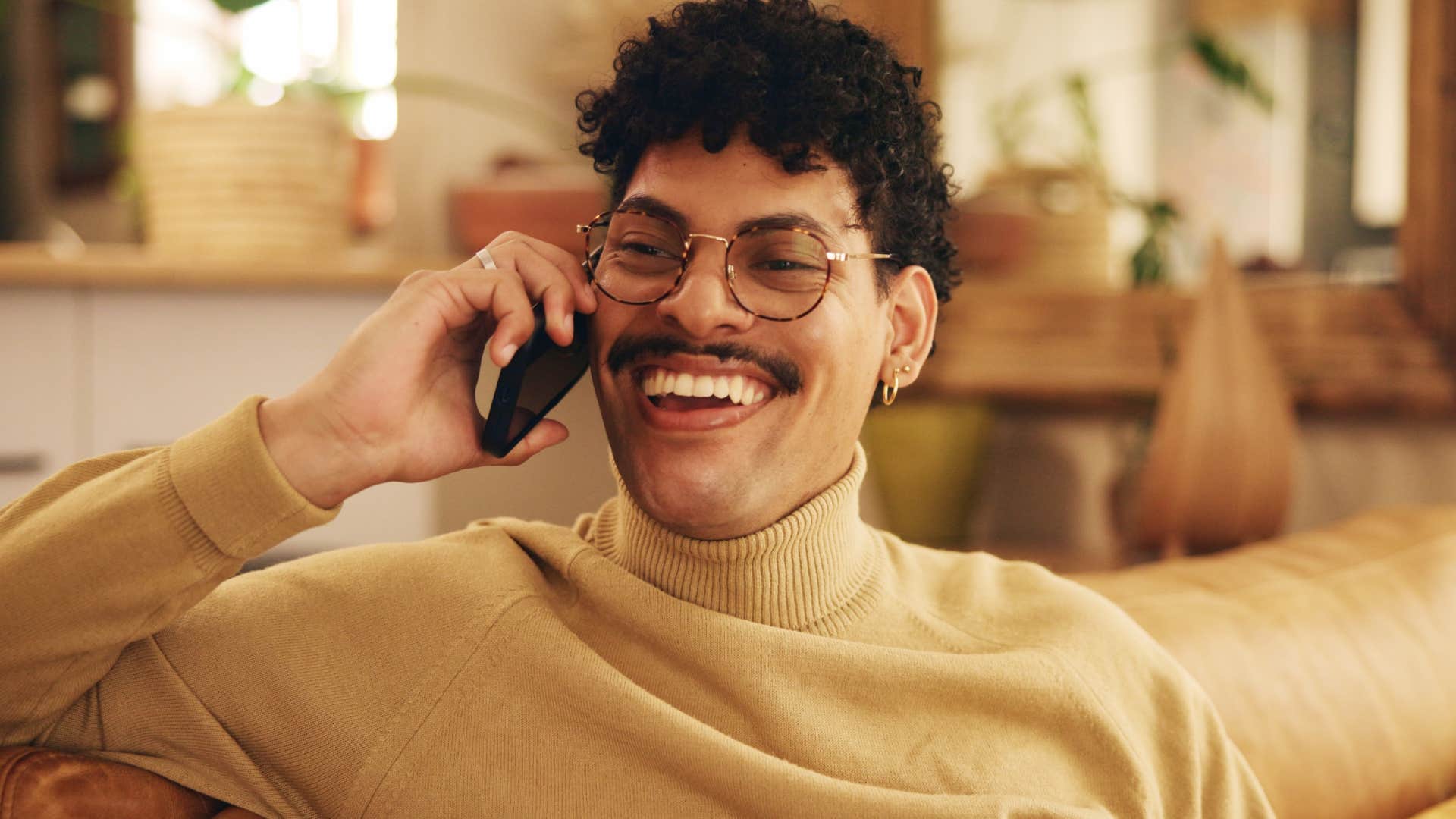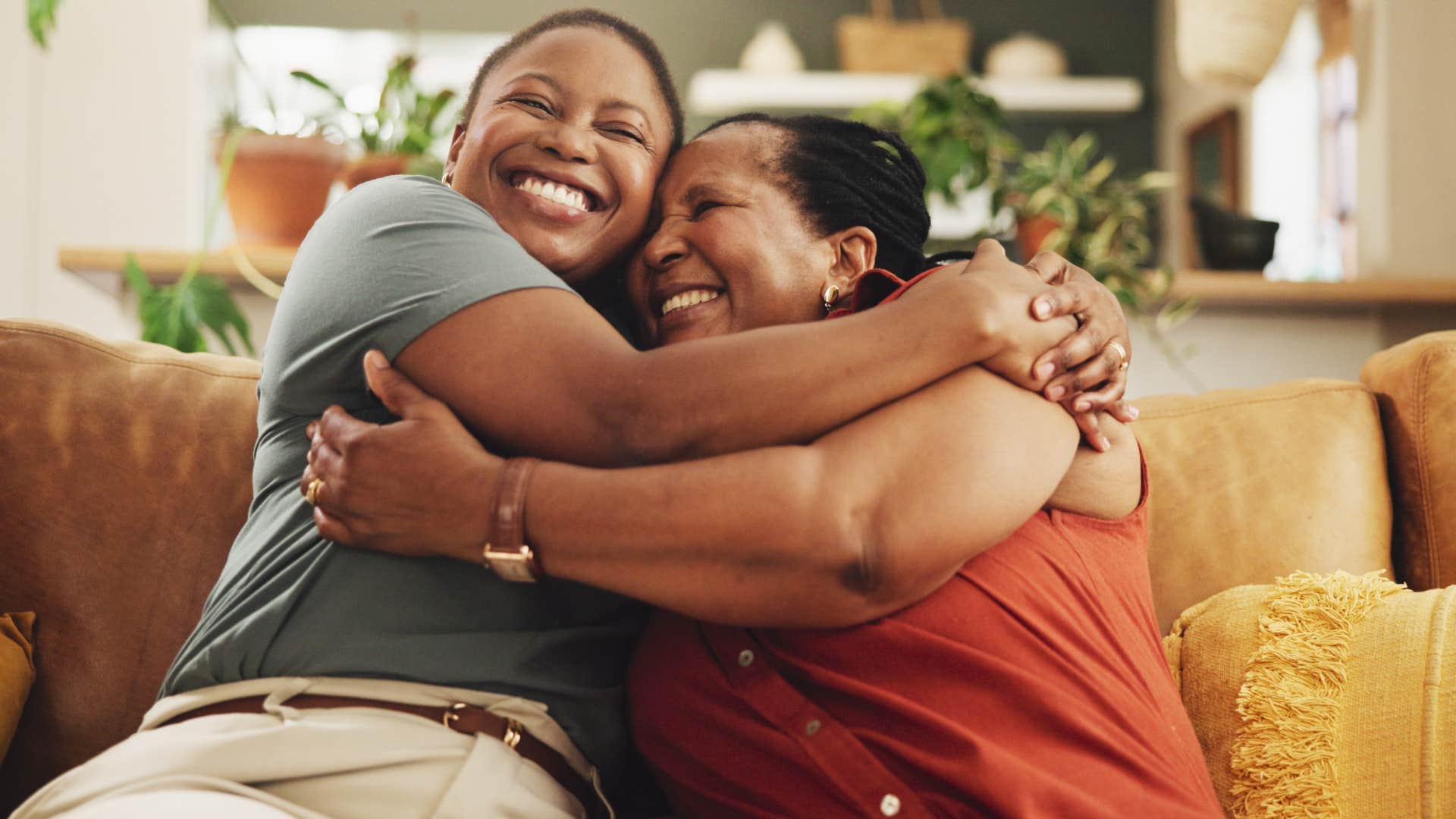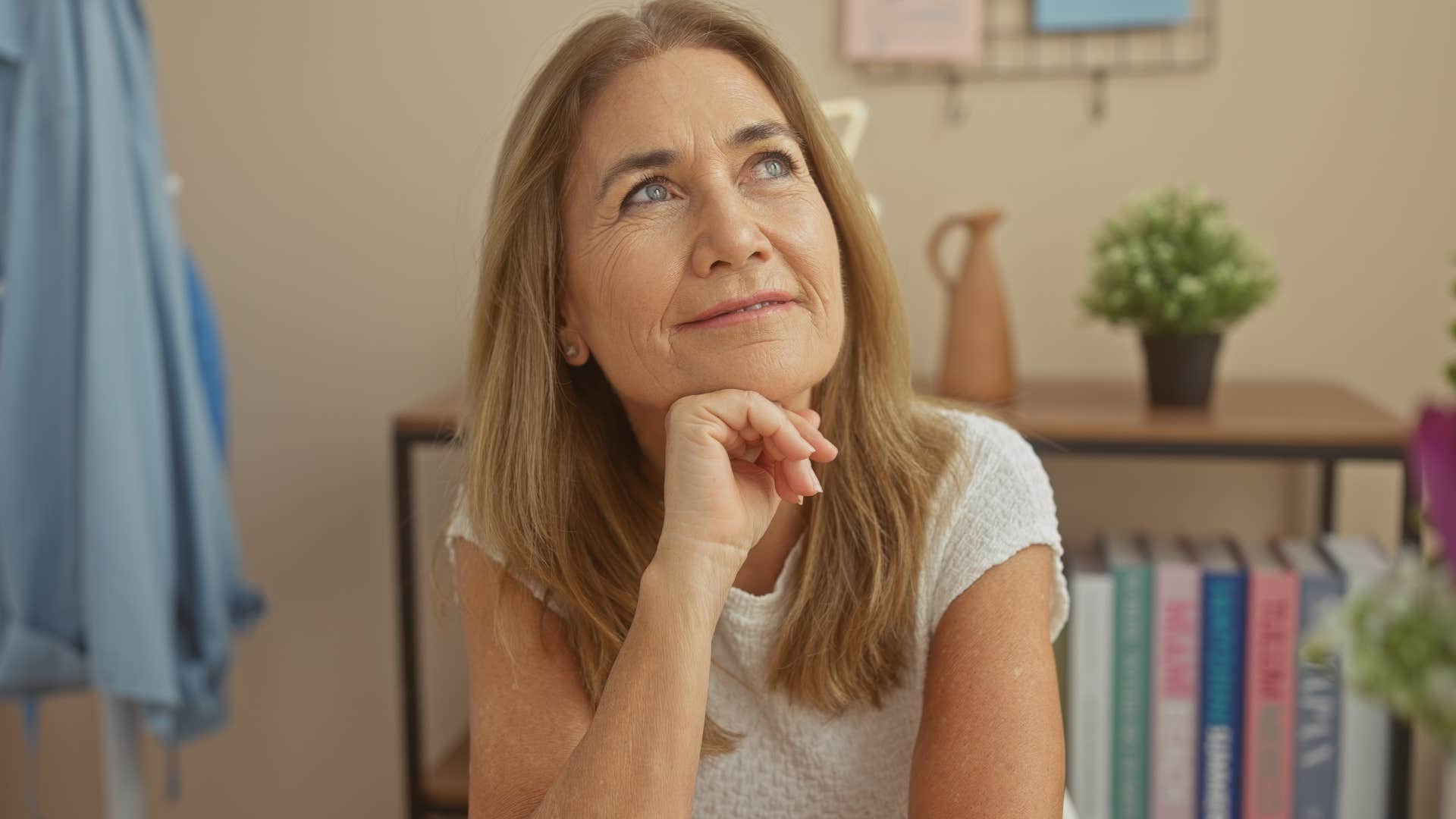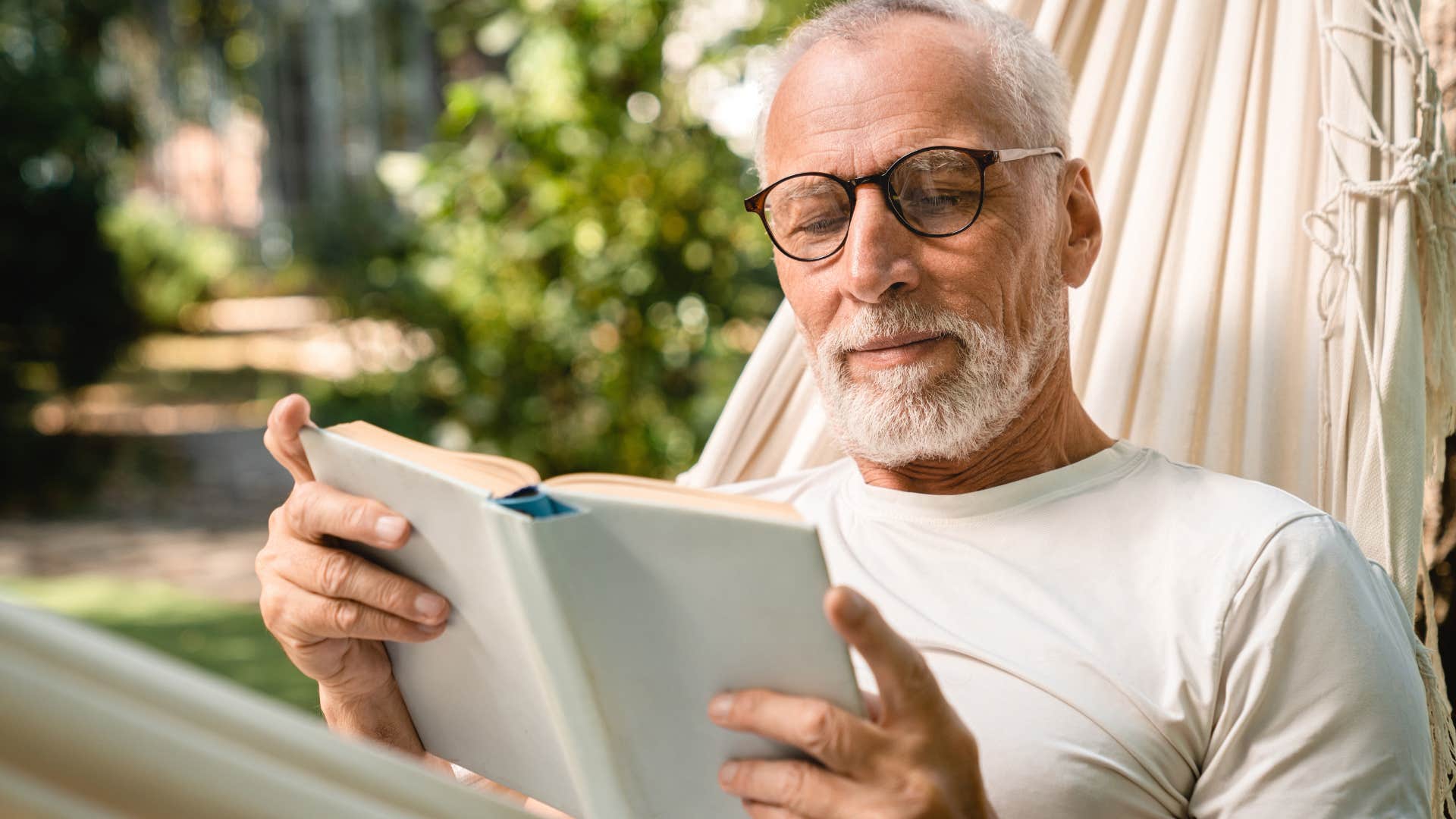11 Powerful Ways To Master The Art Of Detachment To Live An Unbothered Life
Letting go doesn't have to be scary.
 Look Studio | Shutterstock
Look Studio | Shutterstock The art of detachment is essentially the practice of letting go — not just of unhealthy people and bad habits, but also the mindsets, insecurities, and perceptions of the world that encourage us to lead with anxiety, rather than optimism. Like psychotherapist Hilary Jacobs Hendel argues, "Detachment means I should not try to change or blame another, but instead make the most and best of myself."
You don't have to detach yourself from your emotions, empathy, or vulnerability to live a better life, but find ways to let go in other areas, setting boundaries to protect your emotional health and removing yourself from relationships that no longer serve you. The powerful ways to master the art of detachment to live an unbothered life help you to connect with yourself, as the narrative of your future, rather than a person on the backburner.
Here are 11 powerful ways to master the art of detachment to live an unbothered life
1. Get comfortable with the temporary nature of life
 Jelena Stanojkovic | Shutterstock
Jelena Stanojkovic | Shutterstock
While it's important to have aspirations and look to the future, like clinical psychologist Angelica Attard argues, it's equally necessary to remind ourselves of the temporary nature and fragility of life. From our relationships, to our careers, and even our physical bodies in the present moment, nothing lasts forever.
The art of detachment is all about letting go, but, of course, you don't have to isolate yourself and cut out the present joys of life to be happy, you just have to embrace this mindset that allows you to make the most of your current experiences without anxiety over the future.
Go on first dates to enjoy someone's company and learn about yourself, rather than trying to lock down and envision a long-term relationship. Find ways to move your body in ways that feel good, rather than trying to change something about yourself. Embrace small moments of relaxation without judgment.
These are the ways you embrace the present moment, without anxiety over constantly trying to change or strive for something permanent.
2. Let go of control in relationships
 Olena Yakobchuk | Shutterstock
Olena Yakobchuk | Shutterstock
Jennifer Litner, LMFT argues that letting go of control in a relationship can allow you to enjoy the present moment more, pouring more time and energy into connection, rather than anxious attachment.
While it's easier said than done for most people, especially grappling with past trauma or navigating a complex relationship, acknowledging the ways you introduce fears and anxieties into a connection is the first step towards better self-awareness.
By leveraging the power of mindfulness, self-reflection techniques, and self-care, you can learn to build healthy coping mechanisms in a relationship that allow you to connect with your internal emotions and self-soothe rather than anxiously seek reassurance or control.
3. Trust the process, detach from outcomes
 Dean Drobot | Shutterstock
Dean Drobot | Shutterstock
By committing to trusting the process in any journey you're currently on — from mental health support, to your relationships, and even wellness — you encourage yourself to live in the present moment, rather than focusing on future outcomes.
Especially when it comes to setting and achieving goals, finding a way to embrace the joy of the journey, as cliché as it might sound, can help you to truly embody the life of the person you're trying to become.
In practical ways, like psychologist Marwa Azab argues, talking about your goals and boasting about achievements before you achieve them can also sabotage your current happiness, encouraging you to lose the motivation it takes to realize them and dismissing any feeling of joy and relief you might have felt down the road.
4. Embrace the present moment
 PeopleImages.com - Yuri A | Shutterstock
PeopleImages.com - Yuri A | Shutterstock
Amid the chaos of daily life, juggling a million different things and responsibilities, it can be difficult to prioritize living in the moment, but there are several tricks you can utilize to find a moment of peace in your day.
According to Arlin Cuncic, author of "The Anxiety Workbook," practicing gratitude and embracing mindfulness are two of the powerful ways to master the art of detachment to live an unbothered life.
By remembering what you have, rather than what you want, and connecting with your mind and body when you're feeling overwhelmed, you encourage yourself to look at the bigger picture. This work project won't last forever. The toxic on-and-off relationship you've been harboring for months isn't permanent. You always have yourself, at the end of the day.
5. Avoid an attachment to material things
 PeopleImages.com - Yuri A | Shutterstock
PeopleImages.com - Yuri A | Shutterstock
According to marriage and family therapist Cheralyn Leeby, our attachment styles aren't just foundational in our relationships with others, they can also influence our mindset around material things. For example, a person with an anxious attachment style may hoard their possessions and experience difficulty in letting them go or viewing them as simply "objects."
However, the art of detachment can apply to our consumerist habits and material things, too. When we remind ourselves that the beauty of life lies in experience and connection, rather than following trends or buying material goods, we can live in the present moment with an aura of security.
Nothing is permanent — your house, your makeup, your car — and nothing is truly a reflection of you, outside of how you interact and connect with others.
6. Accept your reality for what it is
 Daniel Hoz | Shutterstock
Daniel Hoz | Shutterstock
Change is the one thing that's consistently constant in our lives, according to psychotherapist Pamela S. Willsey, yet many of us have anxious thoughts about it and few tactics for coping when it happens unexpectedly.
By accepting the mindset that your reality is enough — that it is what it is — you remove yourself from constantly wishing for and focusing on what could be better or what you don't have. As one of the powerful ways to master the art of detachment to live an unbothered life, living in the present moment won't just help you to love yourself, it removes the unnecessary anxiety we feel wishing for the "bigger, better, more exciting."
Whether it's mindfulness practices or acceptance, learning to express and embody gratitude can change your life, like experts from Harvard Health suggest, opening you up to the beauty of the present moment and a more grounded emotional state.
7. Feel your emotions fully
 Krakenimages.com | Shutterstock
Krakenimages.com | Shutterstock
Acknowledging and addressing your emotions as they arise is a foundational practice for people with high emotional intelligence. Rather than avoiding complex feelings or actively suppressing their discomfort, they make space to feel what they're feeling and live in the present moment.
Suppressing your emotions only ensures you feel more numb and disconnected, both from yourself emotionally and from the people in your life. The art of detachment isn't about avoiding vulnerability, but rather, embracing it without anxiety and living with your humanity, even when it's uncomfortable.
8. Let go of things that no longer serve your happiness
 Inside Creative House | Shutterstock
Inside Creative House | Shutterstock
To truly master the art of detachment and acceptance in your life, you have to let go of the things that no longer serve you. Whether they're unhealthy habits or toxic relationships, anything that doesn't actively provide, bring joy, or enhance our lives shouldn't take up our time or energy.
While it's easier to cultivate this mindset than to truly bring it into practice, starting with mindfulness techniques that encourage us to build a better relationship with ourselves can empower us in making these difficult changes and decisions.
9. Practice self-care often
 Inside Creative House | Shutterstock
Inside Creative House | Shutterstock
According to clinical mental health instructor Dr. Matt Glowiak, self-care doesn't have to look like face masks and bubble baths, although they're equally enriching activities; it can be anything that enriches your emotional, mental, or physical wellbeing. A healthy conversation with a partner can be self-care, or a journal entry, or a solo date.
Finding ways to build a better relationship with yourself, founded on respect, trust, and compassion, can not only fuel your social connections, but encourage you to detach yourself from the anxious and unhealthy coping mechanisms in your life.
10. Learn how to say 'no'
 Krakenimages.com | Shutterstock
Krakenimages.com | Shutterstock
Detaching yourself from the unhealthy relationships and aspects of your life can be incredibly difficult when you can't say "no," always people-pleasing and trying to make everyone else happy, without any regard for your own self-respect.
One of the powerful ways to master the art of detachment to live an unbothered life is setting clear boundaries, and that can start with learning how to turn down people and things that don't serve you. While it might be uncomfortable at first to learn how to effectively advocate for yourself, having the confidence to say "no" can truly change how you live your life in your best interest.
11. Don't take things too personally
 Ground Picture | Shutterstock
Ground Picture | Shutterstock
Most of the things that spark discomfort in our lives, from breakups with partners to anxiety over work, aren't personal attacks on us as people, but rather a reflection of other people's experiences and struggles. By taking a step back, looking at the big picture, and making the conscious choice not to take everything so personally, you give yourself the space to look after yourself without guilt or judgment.
In an argument or amid conflict, remembering to not take things personally can be one of the powerful ways to master the art of detachment to live an unbothered life. You don't have to detach from your emotions or vulnerability, but rather, the defensive mechanisms that might cause you to resort to anger or irritability in a conversation.
When we don't view everything someone says or does as a direct attack on us, we have more space for healthy communication and empathy.
Zayda Slabbekoorn is a staff writer with a bachelor's degree in social relations & policy and gender studies who focuses on psychology, relationships, self-help, and human interest stories.
